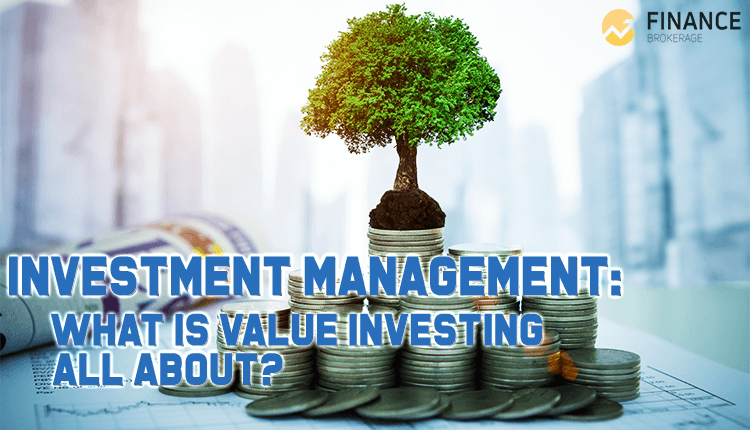
Investment Management: What is Value Investing All About
Key Takeaways:
- Value investing is a powerful strategy that involves seeking out undervalued assets, offering both protection and potential for long-term gains.
- Effective portfolio management is essential for achieving financial independence through stock investments.
- Newcomers should learn about different financial tools, get advice from investment experts, and understand the financial markets well.
- Value investing originated during the Great Depression and has evolved into a sophisticated approach, focusing on fundamental analysis and seeking deeply discounted stocks.
- Successful value investors like Benjamin Graham, Warren Buffett, Shelby Cullom Davis, and Joel Greenblatt have demonstrated the effectiveness of this strategy in achieving excellent returns over time.
Have you ever thought about what Investment Management is and what does it look like? Why should you lean more about this interesting and profitable Investment management industry in the long run?
First of all, stocks investment is one of the most dominant ways to achieve financial independence. But if you lacked strategy, long-term mindset and knowledge about it, you might waste money. If you’re still a beginner, it’s best if you acquire information about stocks, bonds, mutual funds, and ETFs.
So, you would know which can be an excellent choice for your hard-earned money. But first, let’s ask a financial analyst and learn what Effective portfolio management is, shall we?
What is effective portfolio management?
Managing your portfolio well is important when investing in stocks, as it can greatly help you achieve financial independence.
However, without a well-defined investment strategy, a long-term mindset, and a solid understanding of the market, you risk wasting your hard-earned money.
If you’re a beginner in the investment landscape, it’s advisable to acquire knowledge about various financial instruments, including stocks, bonds, mutual funds, and exchange-traded funds (ETFs), with the guidance of an investment adviser or wealth manager from reputable investment firms.
Developing a well-rounded understanding of the financial markets
By seeking the expertise of these investment professionals, you can develop a well-rounded understanding of the financial markets and make informed decisions on how to diversify and manage your portfolio effectively.
This approach not only helps safeguard your wealth but also positions you for the best possible outcomes in your pursuit of financial independence.
So, why should individual investors learn more about the overall investment management? What does our investment analyst has to say about that? Let’s take a look at all the crucial information regarding this!
What does Value Investing look like?
Value investing is a tactic to look for stocks selling lower than the value of their assets or to their cash flows.
Investors can protect themselves by purchasing a company’s assets or cash flows at a discounted price compared to their actual value. This provides them with a safety net. It is because they paid lower than the actual worth of an asset.
Value Investing: A Strategy for Long-Term Gains
Value investors purchase assets at prices lower than their actual value. They then patiently wait for the market to recognize the disparity between the price of a stock and its true worth.
This method protects a business by using the value of its assets to minimize potential losses. It applies even in the event of business failure and the subsequent sale of its assets.
The advantages of value investing include its protective nature and the potential for promising gains when acquiring assets below their intrinsic value.
However, it demands considerable patience, as it may take time for the market to adjust the price of the asset, ultimately leading to higher profits.
Historical Origins and Evolution of Value Investing
Value investing began during the Great Depression when investors only bought companies with assets worth more than their stock price.
Over the years, this strategy has evolved from merely buying and selling companies to incorporating fundamental analysis of a company’s cash flows, earnings, market advantages, and the search for deeply discounted stocks.
Today, value investing is a sophisticated approach to financial planning, often undertaken by asset managers and individuals with a bachelor’s degree in finance, guided by a board of directors, with the goal of achieving long-term financial success and security.
List of Victorious Value Investors
- Benjamin Graham – the father of value investing. He is the root of precepts of value investing, the concept of intrinsic value and the margin of safety.
- Warren Buffet – Berkshire Hathaway’s CEO. He uses the value investing tactic to deliver excellent returns to investors.
- Shelby Cullom Davis – practiced the strategy in a distinctive manner. He concentrated in the industry of insurance. The edge of an insurance company is how they make money.
- Joel Greenblatt – focuses on his “magic formula”. His formula measures businesses by knowing their earnings yield and return on invested capital.
Bottom line
Delving into the realm of value investing offers not only a chance to safeguard your investments but also the potential for significant long-term gains. This strategy involves the patient pursuit of assets trading below their intrinsic value, a method that has withstood the test of time.
By understanding the historical origins and evolution of value investing, you gain insight into how it has transformed from a simple concept into a sophisticated financial planning approach.
Learning from renowned value investors like Benjamin Graham and Warren Buffett can provide valuable lessons in navigating the complexities of the financial markets and achieving your financial goals.
-
Support
-
Platform
-
Spread
-
Trading Instrument




